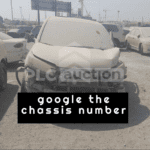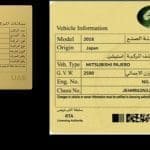

Process of Buying a Second Hand Car in Dubai: A Complete Guide
Process of Buying a Second Hand Car in Dubai: A Complete Guide
Buying a second-hand car in Dubai is a great way to save money while still getting a reliable vehicle. The process, however, can be overwhelming if you’re not familiar with the steps. This guide will walk you through everything you need to know about buying a second-hand car in Dubai. Whether you’re new to Dubai or have been living here for years, understanding how to buy a used car can make your experience much smoother.
Step 1: Set a Budget
Before you start looking for a second-hand car in Dubai, it’s important to set a clear budget. Consider how much you’re willing to spend on the car and how much you’re able to afford in monthly payments if you’re opting for a loan. Factor in additional costs such as insurance, maintenance, and registration. Dubai offers a wide range of options, from affordable used cars to luxury vehicles, so knowing your budget will help you narrow down your choices.
Step 2: Research the Market
Dubai has a large used car market, with numerous dealerships and online platforms where you can find second-hand cars. To make an informed decision, spend some time researching. Look for the make, model, and year of the car you’re interested in. Compare prices across different sellers and platforms to ensure you’re getting a fair deal. Popular websites like Dubizzle, CarSwitch, and iCarsU.com offer a vast selection of used cars, which can give you a better idea of market prices.
Research also involves understanding the history of the car. If you’re buying from a private seller, ask for the vehicle’s service records, accident history, and ownership details. This will help you assess the condition of the car and whether it’s worth the asking price.
Step 3: Inspect the Car
Once you’ve found a second-hand car that fits your criteria, it’s time to inspect it. Whether you’re buying from a dealership or a private seller, always inspect the car thoroughly. A visual inspection is the first step: check the body for any dents, scratches, or signs of rust. Make sure the tires are in good condition, and check the vehicle’s interior for any signs of wear.
Pay attention to the car’s engine and undercarriage. Listen for any unusual noises when the engine is running, and check for leaks or fluid stains. If you’re not familiar with car mechanics, it’s wise to bring a trusted mechanic to do a more detailed inspection. This will give you peace of mind that you’re not buying a car with hidden issues.
Step 4: Test Drive the Car
Before making any decisions, always take the car for a test drive. This is one of the most important steps in the buying process. It will help you determine how well the car runs and if it meets your expectations. Pay attention to how the car drives, whether the brakes work smoothly, and if the steering feels responsive. Test the air conditioning, lights, and all electrical components to ensure they are functioning properly.
If you’re buying a used car, it’s essential to test drive the car in various conditions. Drive it on both highways and local roads to get a feel for its performance. A thorough test drive can reveal issues you might not have noticed during the initial inspection.
Step 5: Verify the Car’s Documents
In Dubai, buying a second-hand car involves ensuring that all the necessary paperwork is in order. Ask the seller for the car’s registration papers (Mulkiya), proof of insurance, and the original purchase invoice. Verify that the Vehicle Identification Number (VIN) matches across the documents and the car itself. Additionally, check if the car has any outstanding fines or payments. If you’re buying from a dealership, ensure that they provide a warranty for the vehicle.
For cars over a few years old, it’s also important to verify the car’s RTA (Road and Transport Authority) inspection report. This document shows whether the car has passed a safety inspection and meets the roadworthy standards in Dubai.
Step 6: Negotiate the Price
Once you’ve inspected the car and are satisfied with its condition, it’s time to negotiate the price. Sellers may offer a higher initial price than what they are willing to accept, so don’t be afraid to haggle. Use the information you gathered during your research and inspection to back up your offer. If you’ve found any faults with the car during your inspection or test drive, point them out and use that as leverage in your negotiation.
Be realistic and set a target price based on your research. Remember, both you and the seller want a fair deal, so be respectful during the negotiation process.
Step 7: Finalize the Payment
Once you’ve agreed on the price, it’s time to finalize the payment. Ensure that you make the payment through a secure and documented method, such as a bank transfer or cheque. Avoid paying in cash, as it’s harder to trace. If you’re paying through a loan, ensure that the financing is in place before finalizing the deal.
If you’re buying from a dealership, they will typically handle the paperwork for you. If you’re buying from a private seller, make sure you sign a sales agreement. This document should include the car’s details, price, and payment terms. Both you and the seller should keep a copy for your records.
Step 8: Transfer the Ownership
Once the payment is complete, the final step is transferring the car’s ownership. In Dubai, this process is done through the Road and Transport Authority (RTA). Both the buyer and seller must visit the RTA together to complete the transfer. You will need to provide the car’s documents, a valid Emirates ID, and proof of insurance. The RTA will issue a new registration card in your name.
It’s also a good idea to transfer the car insurance into your name. This ensures that you’re covered if anything happens to the vehicle after the purchase.
Step 9: Registration and Fees
After the ownership transfer, the car needs to be registered in your name. You will need to pay the registration fee at the RTA. The cost will depend on the type of car and whether it’s a new or used vehicle. Registration typically lasts for a year, and you’ll need to renew it annually. Make sure that you also have the car’s RTA inspection report, as it’s required for registration.
In some cases, you might also need to pay a transfer fee. This fee is often a small amount, but it’s important to keep in mind when budgeting for your purchase.
Step 10: Enjoy Your New Car
Once everything is done, you can finally enjoy your second-hand car in Dubai. Make sure to keep all the necessary documents, including the registration papers, insurance details, and the sales agreement, in a safe place. Regular maintenance is key to ensuring your car remains in good condition for years to come.
Final Thoughts
Buying a second-hand car in Dubai can be an exciting experience, especially if you follow the right steps. From setting a budget to ensuring the car is in good condition, each stage plays a vital role in ensuring a smooth and successful purchase. Always do thorough research, inspect the car, and ensure the paperwork is in order. If you follow these steps, you’ll be able to buy a second-hand car that serves you well for many years.
By understanding the process of buying a second-hand car in Dubai, you can avoid common pitfalls and make an informed decision. Whether you’re looking for a budget-friendly vehicle or a luxury car, Dubai’s used car market offers a wide range of options for every type of buyer.
How do I find the best second-hand car dealers in Abu Dhabi?
To find the best second-hand car dealers in Abu Dhabi, start by researching well-known dealerships online. Platforms like iCarsU.com and Dubizzle list a wide range of used cars. Always read reviews and check the reputation of the dealership before making any decisions. Visiting local dealers and attending car exhibitions in Abu Dhabi can also help you discover reliable options.
What documents do I need to buy a second-hand car in Abu Dhabi?
When buying a second-hand car in Abu Dhabi, you will need several important documents. These include the car’s registration papers (Mulkiya), proof of insurance, the original purchase invoice, and a valid Emirates ID. Make sure the car’s Vehicle Identification Number (VIN) matches across the documents and the vehicle itself. If the car is more than three years old, ensure it has passed the RTA inspection.
Are there any fees involved when registering a second-hand car in Abu Dhabi?
Yes, when registering a second-hand car in Abu Dhabi, there are some fees to consider. You will need to pay the registration fee at the RTA, which varies depending on the car’s make, model, and age. Additionally, you may need to pay a small transfer fee. It’s important to factor these costs into your budget when buying a used car.
Can I buy a second-hand car in Abu Dhabi from a private seller?
Yes, you can buy a second-hand car from a private seller in Abu Dhabi. While buying from a private seller can sometimes offer lower prices, it’s essential to conduct a thorough inspection and ensure all paperwork is in order. Private sales may not offer the same warranties as dealerships, so make sure you’re comfortable with the vehicle’s condition before proceeding.
What should I do if I find issues with the car after buying it in Abu Dhabi?
If you find issues with a second-hand car after purchasing it in Abu Dhabi, you should contact the seller immediately to discuss the problem. If the car was purchased from a dealership, they might offer repairs or even a refund, depending on the terms of the sale. If bought from a private seller, it’s more challenging, but you may still have legal recourse if the issues were misrepresented.
Sell any car cash todayCheck our Blog posts for more tips related to buying, selling, or registering a used car in Abu Dhabi, dubai or any place in UAE.
Add a comment Cancel reply
Categories
- Abu Dhabi (2)
- Accidents (3)
- Car Registration (1)
- GCC Specs (3)
- Imported (3)
- Sell a car (1)
- Specs (1)
- Uncategorized (11,161)
Recent Posts
Related posts


Reliable Used Car Dealer in Al Markaziyah Abu Dhabi

Trusted Used Car Buyer in Al Markaziyah











